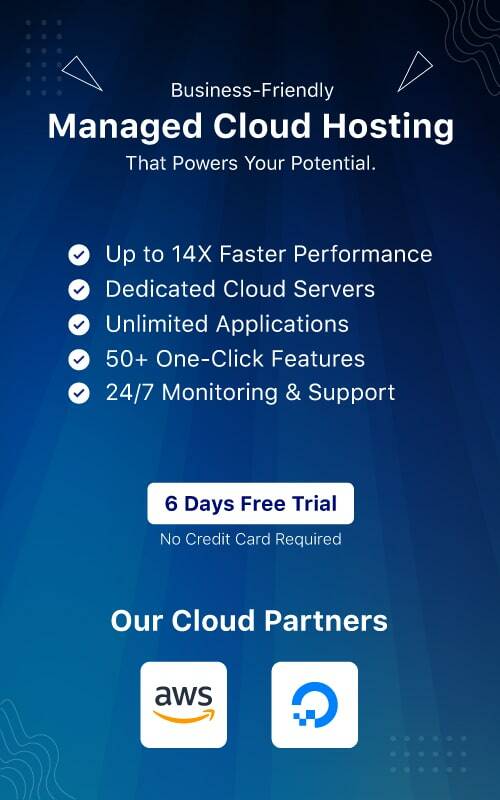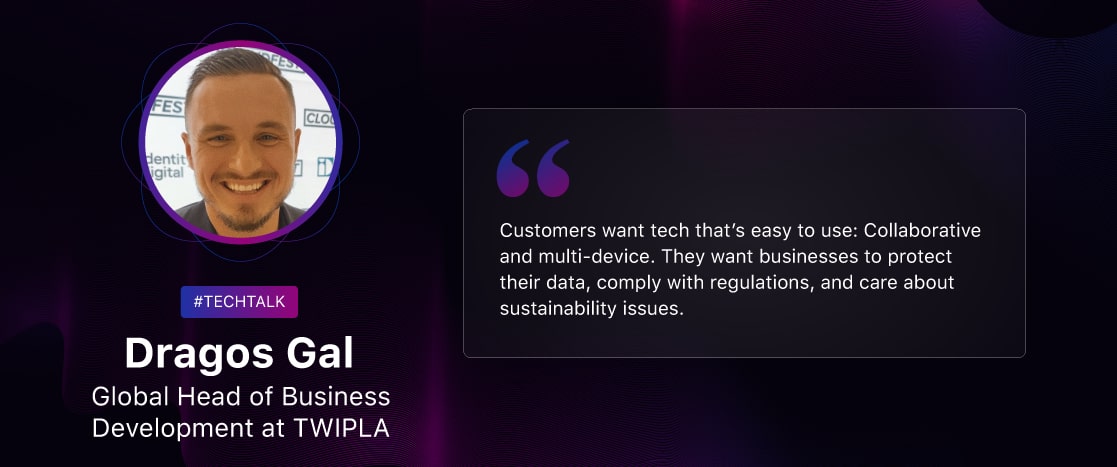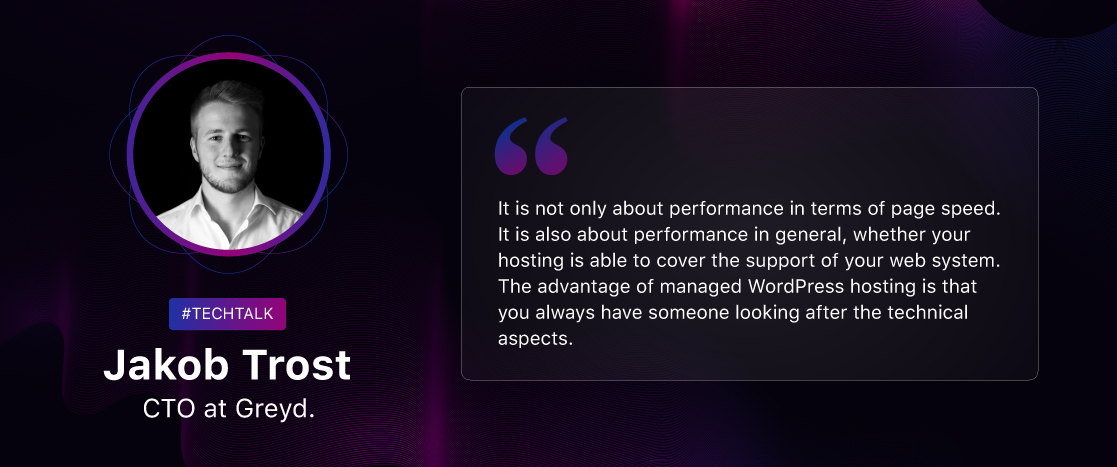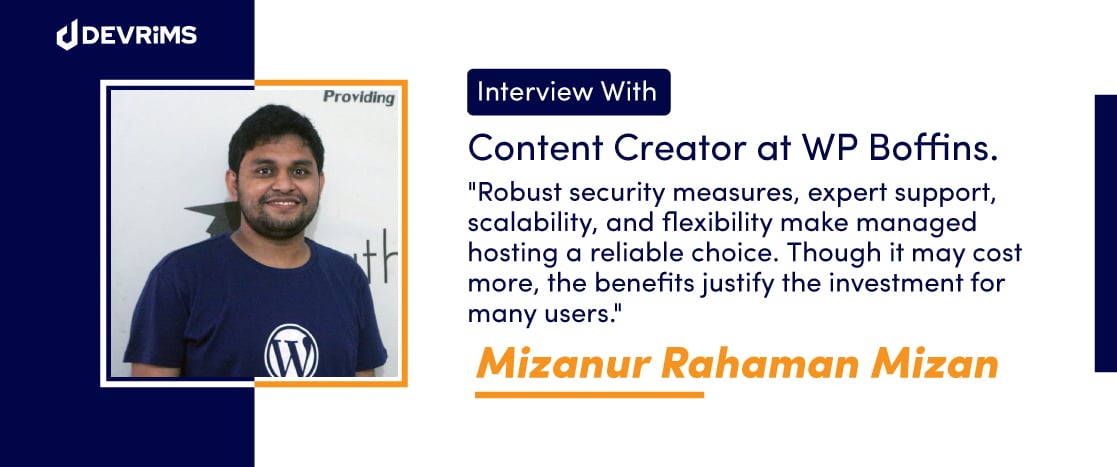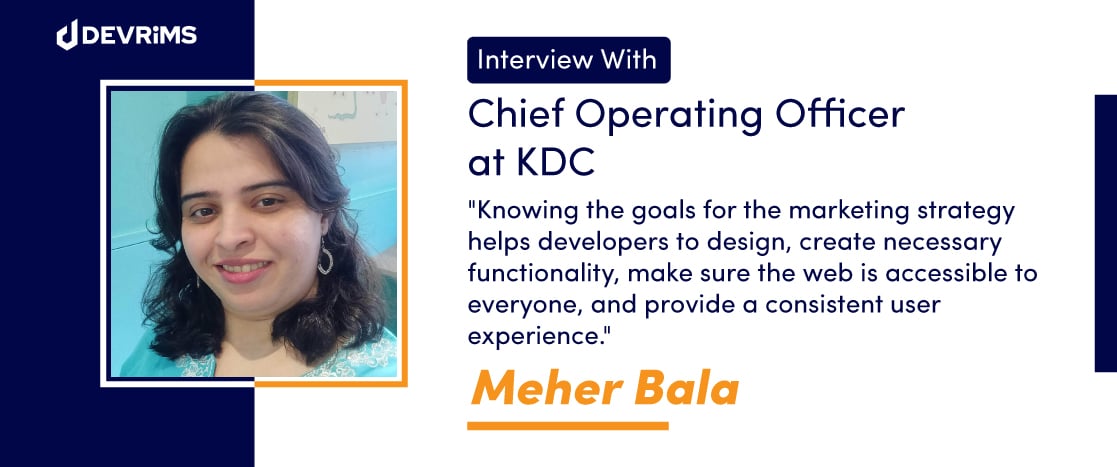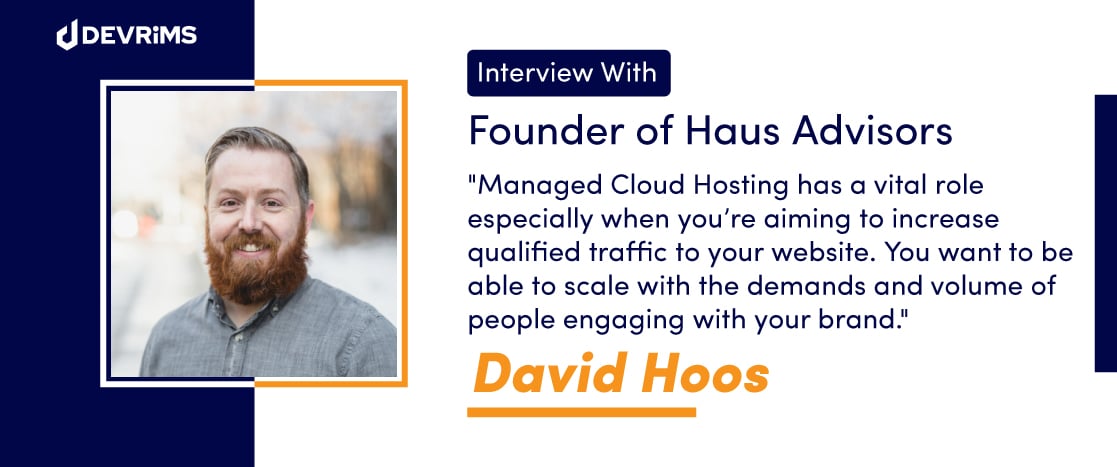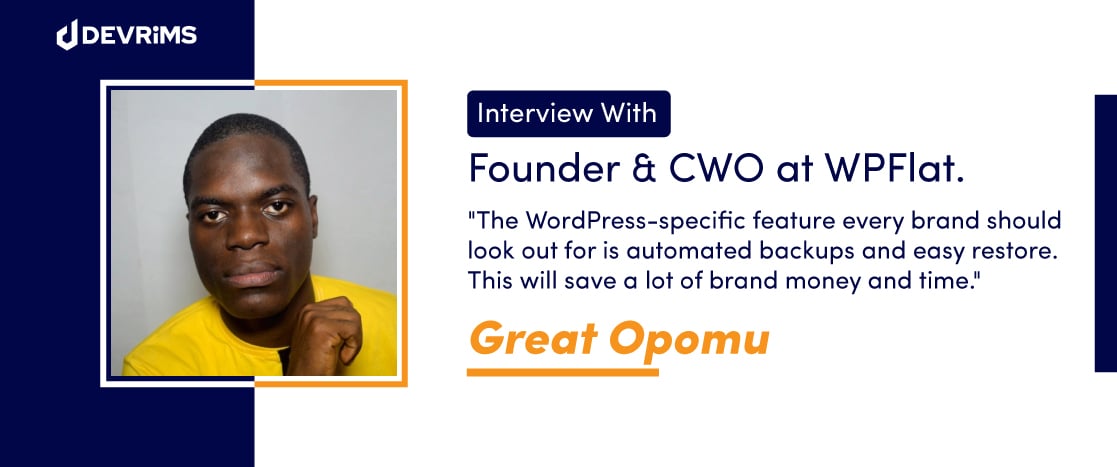
Devrims #TechTalk 032: Aleksandar Predic Provides Insights on WordPress Prototyping and Community Events
In today’s interview, we have the pleasure of speaking with Aleksandar, a seasoned web developer and the co-founder of AlmaCore, a WordPress agency specializing in custom integrations for small and medium-sized businesses.
With over a decade of experience in the world of WordPress, Aleksandar shares his insights into the dynamic landscape of web development, the WordPress community, and the evolving tech industry.
As a dedicated member of the WordPress community, he not only contributes to its growth but also takes an active role in organizing local meetups and WordCamp events.
Join us as we delve into his journey, perspectives, and valuable recommendations for developers and businesses alike.
Devrims: Aleksandar, thanks so much for joining us today! To kick things off, we’d love for you to share a bit about yourself with our readers. Tell us about your current role and the work you’re focused on now.
Aleksandar: Hi, thanks for the opportunity to share my thoughts.
Currently, I’m a co-founder of a small WordPress agency, AlmaCore, which is focused on developing and maintaining custom integrations for small and medium businesses.
As a web developer and agency owner, my current day-to-day work is composed of meetings with clients, coding, and managing a team of developers. Most of the tasks are related to WordPress and coding custom solutions. This helps me learn as I encounter something new every day, which makes this a perfect combination for me. With over a decade of experience in WordPress, it is natural that most of the time I’m focused on working with this platform.
Besides work, I’m an active member of the WP community, I was an organizing team member for a few #WCEU WordCamps in the previous years. Now I’m more focused on helping the local community and promoting WordPress within my country. In my town, I’m organizing local meetups, the #WPNis meetup group and I am an active member of the #WPSerbia community.
Devrims: What first inspired you to pursue programming and web development? Who or what provided motivation and learning resources early on as you were developing your skills?
Aleksandar: I always felt the desire for programming. From a young age, I’ve played with my Commodore 64 computer. Sometimes I’ve spent a big part of the day copying code from the book to the Commodore 64 text editor just to see the end effect. I didn’t understand it back then, but I was enjoying the feeling of seeing my code run for 10 seconds after hours and hours of typing 🙂
When the time came to select my career orientation, back in my time, I was born in 1982 so I’m not that old, there were no classic programming schools in my country. So I chose economic science studies as my next path. After many many years of trying to fit in as an economist, nothing felt right. So, I discarded all and started fresh by learning PHP as my first programming language. After that, I got a job at a WordPress agency, Shindiri Studio, which was an elite author at the ThemeForest marketplace. From there I was involved in the WordPress community which is the best and most welcoming community, so next years passed as a moment and here I am now.
For the resources I’ve used throughout my career, I would say that Tuts+ and Laracast had the biggest impact. Also, I need to mention that being involved in the WordPress community helped me become the developer I am today. It helped me learn many new topics and exchange experiences with other similar people and no tutorial can provide that. I would strongly advise anyone who is starting to get involved in the community, any community, that is going to be the next best thing they did for themselves.
Devrims: WordPress is being used more and more for major websites and industries given its flexibility – from ecommerce stores to blogs and beyond. As someone experienced with WP, what recommendations or guidance would you give to developers just starting out?
Aleksandar: If we are talking about developers who have been working with WordPress for a very short time, I would advise them to learn the WordPress page lifecycle so they can understand how WP really works behind the scenes. Take a look at this awesome article by WPBeginner about this topic. Once they know this, it will be much easier to use action and filter hook, create plugins or themes, and debug issues in WP.
The other recommendation would be to start learning JS, if they are not familiar with it. You can do a lot with PHP in WordPress, but you will need to have a better understanding of JS for the coming years.
Devrims: In your view, what are some differences between developing for WordPress vs. other frameworks like Laravel? Pros and cons of each?
Aleksandar: I’ve been to both sides developing in Laravel and WordPress and in my opinion, these are two totally different experiences. It can depend greatly on the project you have, for example, in WP you can have an older project where you have to maintain some backward compatibility with some plugins. Or, if you are creating a theme for the marketplace, you need to consider 3rd party plugins and their code, in order to make your theme work out of the box with most of them.
Many design patterns that are used in Laravel are not suited for WordPress. You can use them for sure, but for WordPress development, depending again on the project, I mostly go with the simplest possible solution.
There are no clear pros and cons. I’ve created REST API in WP which is still working perfectly well. I also created REST API in Laravel which had its advantages over WordPress but it is again as I said multiple times, depending on the project requirements and future planned features.
Maybe, one difference that is worth mentioning is that WP has a lot of plugins that you can use to build the project, but on the other hand, they bring more functionalities that you need and with that sometimes more issues than you would have if you coded the feature using some composer package. I would even say that WordPress has this trap in which you can easily fall, despite Laravel where you have clear guidelines for coding practices, so debugging an issue is much easier. But in both WP and Laravel, you can craft your code to perform well.
Devrims: For larger enterprise sites, what factors are most important in choosing a managed WordPress hosting provider?
Aleksandar: For large enterprises, I would not recommend managed WP hosting at all. Maybe managed VPS or dedicated server. I’ve used a couple of known hostings, and I’ve had good experiences with such hosting providers, but, as I mentioned before and as developers like to say, it depends on the project, type of the project, and the type of the end user. It also depends on the technology used and the quality of the codebase.
Devrims: The WordPress community continues to grow rapidly each year. Looking ahead 5 years from now, what potential do you see for the community’s future?
Aleksandar: The WP community will continue to grow each year. In 5 years I think that the structure will change for the better. Most probably the teams we have today will change slightly and split into more smaller teams dedicated to a smaller topic. I expect many processes streamlined and improved, like the plugin review queue which is currently an issue for the new plugin submitters.
There are constantly new works on simplifying the onboarding of new contributors and letting them take part in building the WordPress platform. I’m sure that in the near future, this process will become even more straightforward than it is today, which will allow the community to grow even faster.
There is already a tool, called contributor orientation tool, that has a goal to make the onboarding easier.
Devrims: Let’s do a quick rapid-fire question:
| Devrims | Aleksandar |
| Cats or Dogs | Both |
| Mac or Windows | Linux than Mac, never Windows |
| Tea or Coffee | Coffee |
Devrims: What are some best practices for building secure and scalable web apps you recommend?
Aleksandar: The shortlist would be something like this:
- Data Validation.
- Use HTTPS to encrypt data.
- Set appropriate security headers in your application.
- Regular Updates.
- Session Management.
- Avoid exposing sensitive information in error messages.
- Implement caching mechanisms at various levels (database, object, and content) to reduce server load and response times.
- Use CDNs to deliver static assets like images, stylesheets, JavaScript files, etc…
- Minimize the number of requests on frontend.
- Database Indexing: Properly index your database to optimize queries and reduce query times.
- Conduct security audits and penetration testing regularly to identify and address vulnerabilities.
Devrims: For startups looking to launch web apps, what technology stack would you advise today?
Aleksandar: Well, WordPress can be a good solution both for the prototyping and building the web apps. It allows you to quickly transform your idea into a prototype and validate the idea.
For example, I recently had a request to create a non-standard loyalty system for a client, but he was unsure of how it should exactly work and which loyalty program we should apply. So, I’ve built a WP working prototype in a week and the client will be validating the idea in the coming months.
This has proven very valuable to the client as with this approach he can save a lot of resources compared to immediately building the entire product without full understanding of the needs.
What technology stack to use for the startup I can not say in advance, without getting familiar with the product they want to build and the project requirements.
Devrims: How can developers balance customization with ease of use when building ecommerce sites?
Aleksandar: Setting the right requirements and features from the start. Properly planning and validating the features before handing them over to developers is the best way to keep the feature list minimal and enable developers to maintain a clean codebase with fewer technical challenges.
Devrims: You have experience being involved with organizing WordCamp events. What would you say is the most difficult aspect to manage when putting together a WordCamp?
Aleksandar: Organizing a WordCamp is a unique experience for sure. You get to meet a lot of awesome people and work with them daily.
I would say that time is the most limiting factor in this event organization.
Every organizer in the WordPress community is a volunteer, so organizing an event is not their daily job. Therefore, you first need to finish your daily work and then add a couple of hours on top for additional organizational work.
But, don’t let me scare you 🙂
Every volunteer works only a number of hours he can spare and all of those contribution is appreciated. After all, anyone who dedicates time to contributing, even the one who only does it an hour a week, is a valuable member of the organizing team.
If you look at the people who are active in the community, you would be amazed by the number of them. I’ve always enjoyed being a member of this awesome WP community and I plan to continue to do so further.
Also, organizing a WordCamp can be scary at first.
There is a big list of milestones that need to be met. Having a good team helps a lot. So, the most difficult aspect of organizing a WordCamp is putting together a good team and having enough time to dedicate.
Devrims: Can we have a glimpse of your work desk?
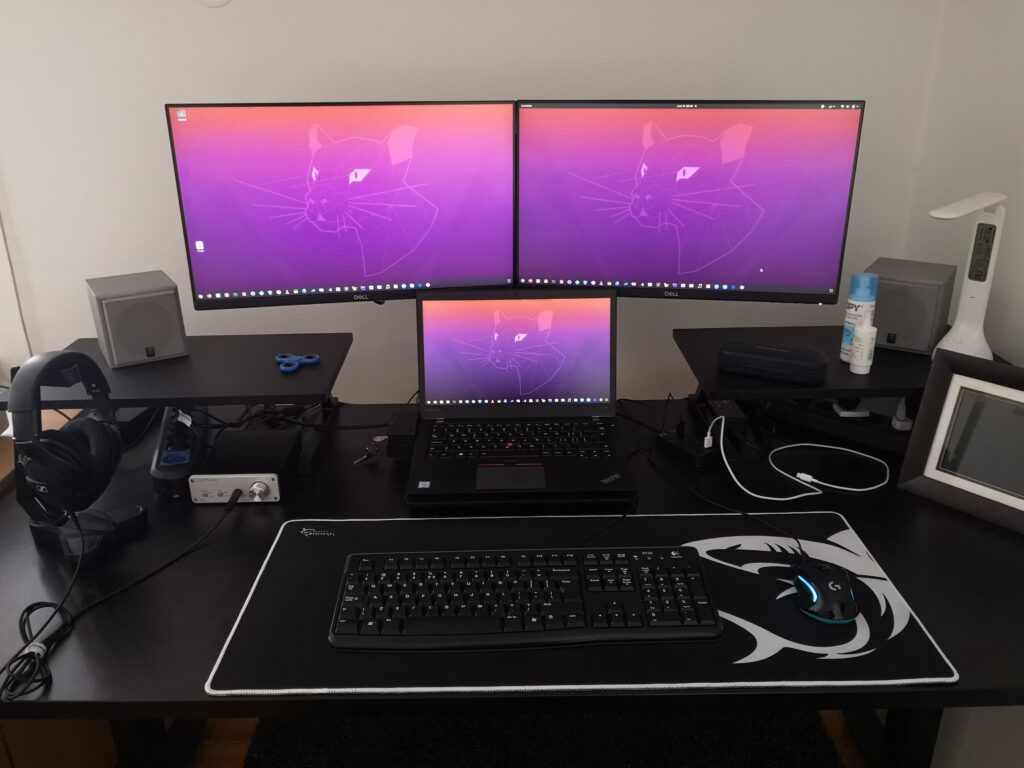
Devrims: Who would recommend us to interview next and why?
Aleksandar: Milana Cap, for being a great WordPress contributor, speaker, and role model for the success path in the open source ecosystem.
